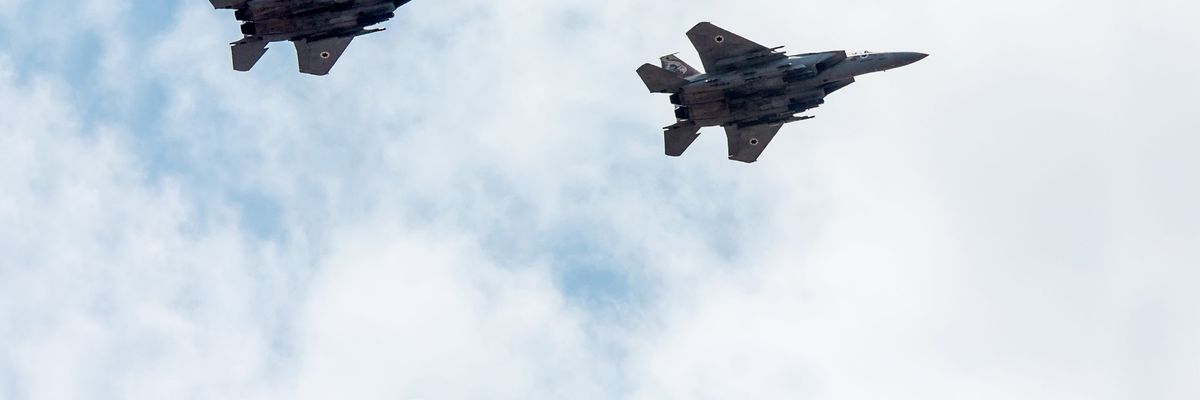Continued failure to restore full U.S. and Iranian compliance with the Joint Comprehensive Plan of Action, also known as the Iran nuclear deal, risks outbreak of U.S.-Iranian warfare in ways that Joe Cirincione partly reviewed in these pages. Some of the scenarios leading in that direction involve unrelated motives that purported U.S. “allies” have for stirring up a fight. Other scenarios involve unforeseen incidents, which tend to arise amid high tension and confrontation, spinning out of control.
But the nuclear issue itself presents a more direct route to war, as some of the history that preceded the JCPOA suggests. One of the motivations for Barack Obama to push ahead with negotiation of what would become the JCPOA — despite all the challenges and roadblocks that had to be surmounted — was to ward off warfare that would begin with a threatened Israeli attack on Iran.
The more that continued non-compliance with the JCPOA leads to continued expansion of Iran’s nuclear program, the greater will be the threat of Israel initiating such a war. Just last month, Israel Defense Minister Benny Gantz said Israel is actively working on lists of Iranian targets to strike if the nuclear expansion continues. Given the perceived nature of the U.S.-Israeli “alliance,” such warfare runs a significant risk of dragging in the United States.
The notion of a military attack to prevent development of an Iranian nuclear weapon is not confined to Israel. The notion has had favor among some foreign policy strategists in the United States, as well as among some whose influence on U.S. policy has been more a matter of money than of strategic sophistication. In the United States as well as in Israel, one can expect the notion to win renewed favor the more that the Iranian nuclear program expands without the restrictions of the JCPOA.
Even looking beyond the political and moral enormity of conducting an act of aggression to try to preclude the mere possibility of a country acquiring a weapon that several other countries (including in the Middle East) already have, the notion always has had major strategic flaws. One of its underlying assumptions has been that after being subjected to such an attack, a cowed Iran would be deterred from striking back by the possibility of being hit with an even worse attack. That assumption — of a coolly restrained and rationally deterred Tehran — contradicts the mad mullah image that has been at the heart of most alarms about why a nuclear-armed Iran cannot be tolerated. It also contradicts the oft-repeated behavior of many proud nation-states, in which being on the receiving end of an act of military aggression is the very situation in which cool is likely to be lost and anger and revenge are more likely to shape responses.
But look beyond those serious strategic flaws and consider whether such an attack would even make an Iranian nuclear weapon less rather than more likely. A relevant experiment in that regard was conducted 40 years ago next door in Iraq: an Israeli airstrike that destroyed a partially completed nuclear reactor located several miles from Baghdad. The attack elicited some cheers in the United States back then, but the passage of time and further investigation revealed that if the purpose of the Israeli attack was to set back an Iraqi effort to build a nuclear weapon, it was counterproductive. The attack almost certainly accelerated such an effort.
Whatever nuclear weapons-related work Iraq may have been conducting prior to 1981 was slow and did not reflect a high priority. That changed after the airstrike. A concerted bomb-building effort enjoyed a surge in resources. The program was placed under wraps at the same time it was enlarged, and Iraq secretly developed uranium enrichment rather than plutonium production as its route to acquiring bomb-grade fissile material. How far Iraq got along this route was uncovered after the first Gulf war in 1991.
There is every reason to expect that Iran’s reaction to an armed attack on its nuclear facilities would be similar. Iran has had interest in a nuclear weapon, as evidenced by some weapons design work in the past, before it decided that being a non-sanctioned member of the international community rather than a nuclear-armed pariah was better for Iranian interests and agreed under the JCPOA to close all possible routes to a bomb.
An armed attack on its territory would be the sort of event most likely to strengthen whatever voices inside the Iranian regime argue that Iran needs nuclear weapons after all. Specifically, the felt need would be for a deterrent against any future attacks. And without the intrusive inspections under the JCPOA if that agreement were to die altogether, Iran would have an easier time developing a weapons capability in secret.
In short, a military attack would be not just a costly alternative to the JCPOA in preventing an Iranian nuclear weapon. It would be not an alternative at all, but instead a blunder that would make such a weapon more likely in addition to incurring all the retaliatory and other costs of resorting to war.
















